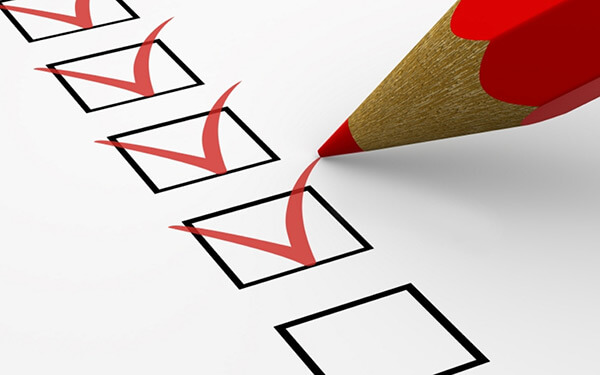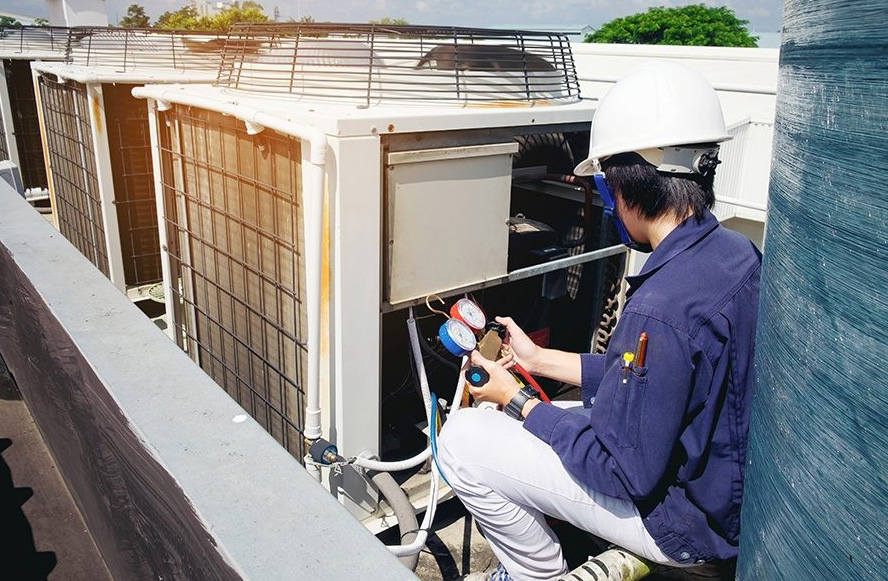Maintaining your HVAC system isn’t just about keeping your home comfortable; it’s also about saving money and extending the life of your equipment. This guide will delve into the world of HVAC preventive maintenance, explaining why it’s crucial, what it entails, and how to keep your system running smoothly all year round.
HVAC Preventative Maintenance

Preventative maintenance, following a comprehensive HVAC maintenance checklist, involves regularly inspecting, cleaning, and servicing your HVAC system to prevent future problems. It’s like getting regular checkups for your car – it helps identify potential issues before they snowball into costly repairs or system breakdowns.
Why You Should Have a Preventative HVAC Maintenance Plan
A preventive maintenance plan offers a multitude of benefits:
-
Saves money
Regular maintenance can prevent expensive repairs down the road by catching small problems before they become major issues.
-
Improves efficiency
A well-maintained system runs more efficiently, leading to lower energy bills.
-
Extends lifespan
Proper maintenance can extend the life of your HVAC system by several years.
-
Enhances comfort
A clean and healthy system, specifically free from a dirty filter, provides optimal comfort by ensuring consistent and efficient heating and cooling.
-
Improves air quality
Regular cleaning helps remove dust, allergens, and other contaminants from your air, creating a healthier environment through your air conditioning system.
What is an HVAC Preventative Maintenance Checklist?
The HVAC preventative maintenance checklist outlines the specific tasks you should perform regularly to keep your HVAC system in top shape. These tasks can be categorized by season and system component.
Spring and Summer HVAC Preventive Maintenance Tasks
As the weather warms up, it’s time to transition your HVAC system from heating to cooling mode. Here are some essential maintenance tasks to tackle in the spring and summer months:
1. Change Air Filters
Replace air filters monthly during peak usage seasons.
2. Clean Condensate Drain Lines
Clogged drains can lead to water damage.
3. Inspect Outdoor Unit
Check for debris and ensure proper airflow.
4. Check Refrigerant Levels
Inspect refrigerant levels in the air conditioner and top off if needed. Low refrigerant levels can indicate a leak and affect cooling performance.
5. Inspect and Seal Ductwork
Inspect ductwork for leaks and seal any gaps or cracks. Properly sealed ducts prevent energy loss and improve cooling efficiency.
6. Test Condensate Drain
Test the condensate drain for clogs or blockages. A clogged drain can cause water damage and reduce system efficiency.
7. Schedule Professional Maintenance
A qualified HVAC technician can perform a thorough inspection and cleaning of your HVAC equipment.
Fall and Winter HVAC Preventive Maintenance Tasks
As the colder months approach, it’s essential to prepare your HVAC system for increased usage. Here are some key maintenance tasks to tackle before the arrival of fall and winter:
1. Inspect and Replace Air Filters
Replace air filters in your air conditioning unit to ensure optimal airflow and indoor air quality. Clogged filters in your HVAC unit can strain the system and decrease efficiency.
2. Check and Clean Vents and Registers
Vacuum or dust vents and registers to remove any obstructions. Ensure that airflow remains unimpeded for even heating throughout your home.
3. Test Thermostat Settings
Test thermostat settings to ensure accurate temperature control. Consider upgrading to a programmable thermostat for energy savings and convenience.
4. Inspect and Clean Heat Exchanger
If you have a gas furnace, inspect and clean the heat exchanger for any signs of damage or corrosion. A malfunctioning heat exchanger can pose safety hazards.
5. Test Carbon Monoxide Detector
Test carbon monoxide detectors and replace batteries if needed. Ensure that detectors are in good working condition to detect any potential leaks from your heating system.
6. Check and Insulate Ductwork
Inspect ductwork for leaks and gaps, especially in unconditioned spaces like attics and crawl spaces. Seal any leaks and insulate ducts to prevent heat loss.
7. Inspect Chimney and Flue
If you have a fireplace or wood-burning stove, inspect the chimney and flue for any blockages or damage. Clean the chimney if necessary to prevent fire hazards.
8. Schedule Professional Maintenance
Consider scheduling a professional HVAC maintenance visit before the start of the heating season. A qualified technician can perform a thorough inspection and tune-up to ensure your system operates efficiently and safely, adhering to the HVAC annual maintenance checklist.
HVAC Specific Preventive Maintenance Checklist
When it comes to maintaining your heating and cooling systems, regular attention can prevent major breakdowns and ensure optimal performance. Here’s a checklist to keep your HVAC systems running smoothly.
Heating Specific HVAC Preventive Maintenance Checklist
- Inspect and clean pilot light/ignition assembly: Ensure proper ignition and prevent system failures.
- Check flue system for blockages: Blockages can lead to carbon monoxide poisoning dangers.
Test and clean humidifier (if applicable): Ensure proper operation of your heat pump and prevent mold growth.

Cooling Specific HVAC Preventive Maintenance Checklist
- Clean evaporator coils: Dirty coils can reduce efficiency and comfort.
- Inspect refrigerant levels: Low refrigerant levels can lead to system malfunctions in air conditioners.
- Check for leaks in refrigerant lines: Leaks in your air conditioning system can damage the system and pose environmental concerns.
How Often Should You Do HVAC Preventative Maintenance?

Ideally, you should have your HVAC system professionally serviced once a year, with additional seasonal maintenance tasks performed as needed.
HVAC Preventive Maintenance Guide
Here are some additional tips for maintaining your HVAC system:
-
Invest in a programmable thermostat
This allows for automatic temperature adjustments for optimal comfort and efficiency, reducing energy costs.
-
Keep the area around your outdoor unit clear of debris
This ensures proper airflow and prevents overheating, which is vital for the longevity of your air conditioner’s condenser.
-
Schedule maintenance during off-peak seasons
This practice can help avoid scheduling conflicts with your HVAC technician and potentially lower service costs.
5 Important Factors to Consider When Making an HVAC Preventive Maintenance Plan
-
System age and type
Newer systems may require less frequent maintenance, while older systems may benefit from more frequent attention.
-
Climate
Harsh weather conditions can put additional stress on your HVAC equipment, necessitating more frequent maintenance.
-
Usage
Homes with frequent or heavy HVAC use may require more frequent maintenance.
-
Budget
Consider the cost of professional maintenance versus the potential cost of repairs due to neglect.
-
DIY skills
If you’re comfortable with basic maintenance tasks, you can save some money by tackling them yourself, but leave more complex tasks to a qualified professional.
Need Help With HVAC Maintenance? Contact Rescue Heat & Air
At Rescue Heat & Air, we understand the importance of preventative maintenance. Our team of certified technicians can provide comprehensive maintenance plans tailored to your specific needs and budget. We offer flexible scheduling, competitive pricing, and superior customer service. Contact us today to schedule your HVAC maintenance appointment and ensure your system is ready to keep you comfortable all year round.
